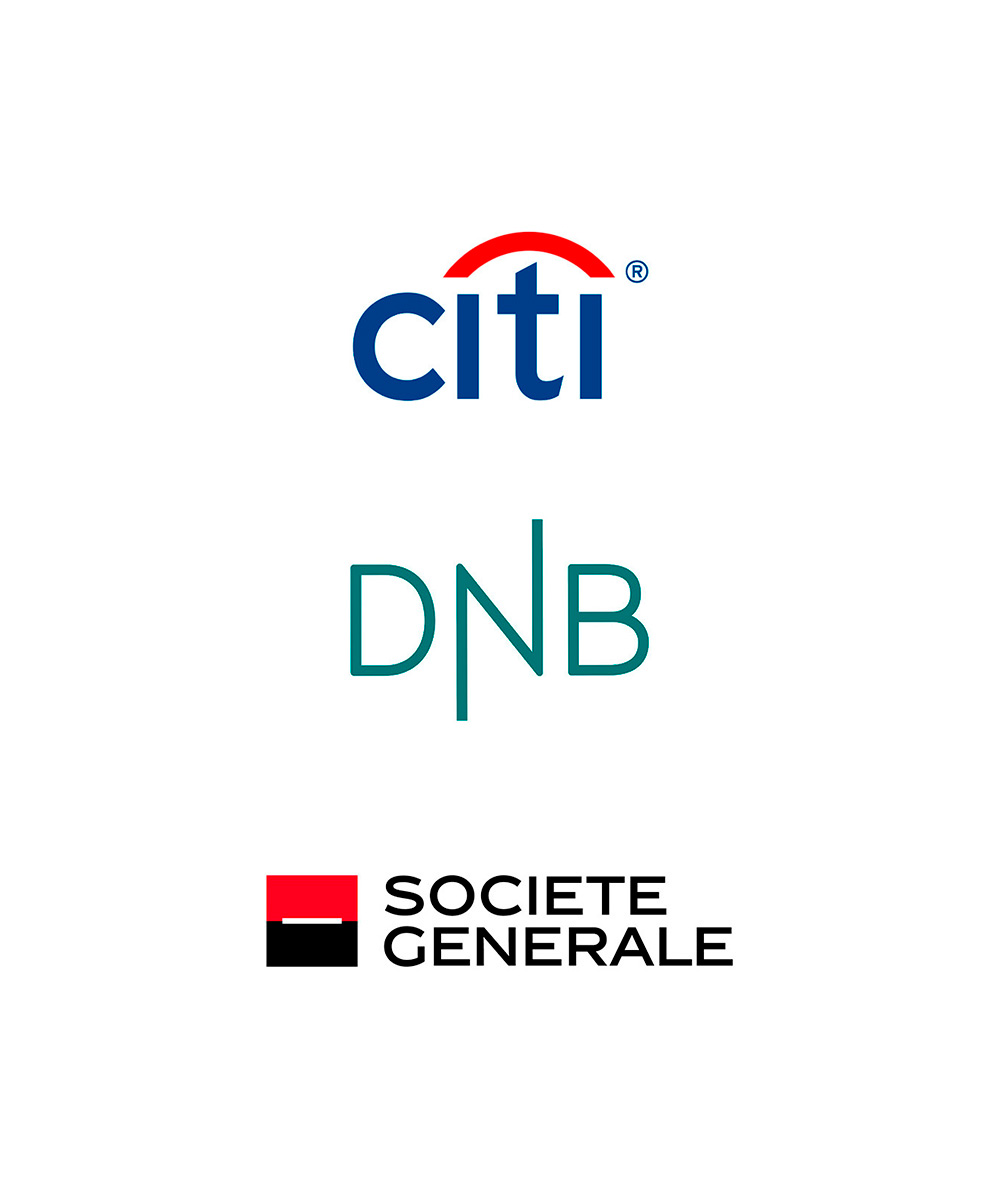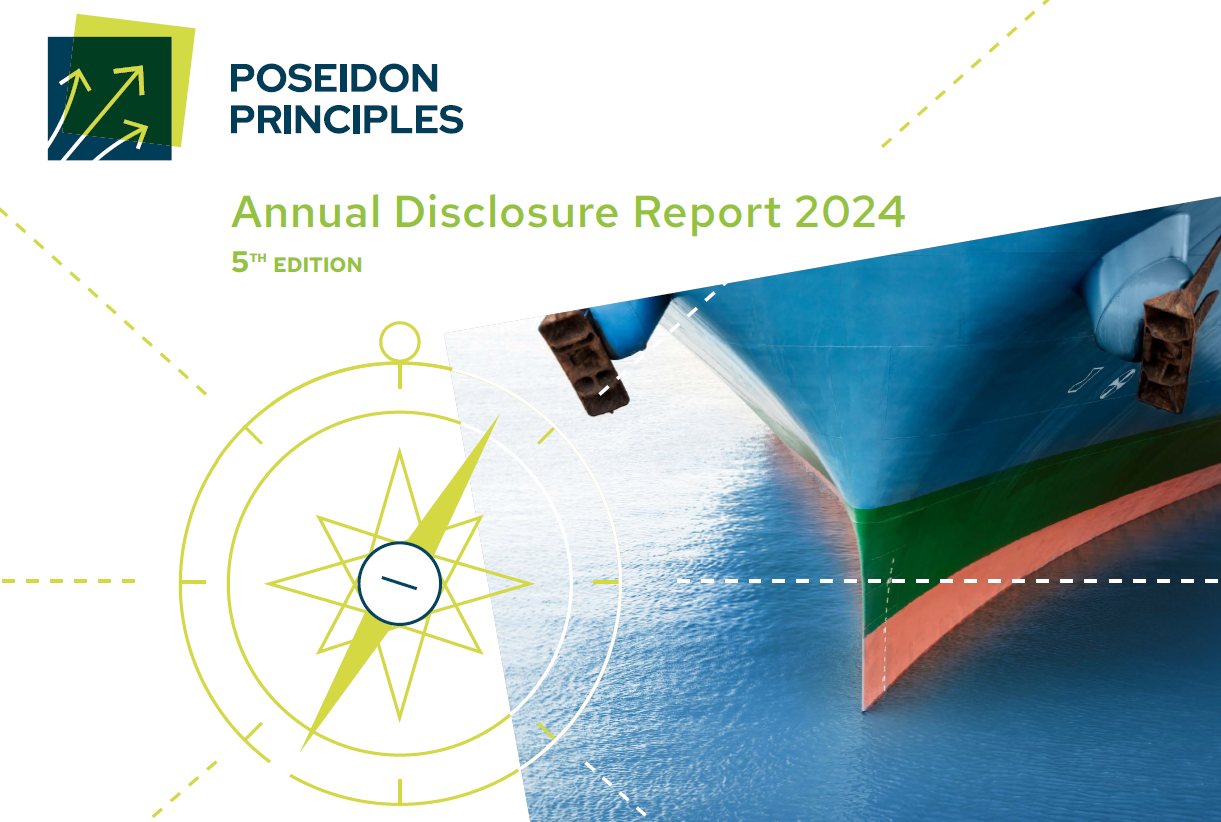
A global framework
for responsible ship finance
The Poseidon Principles provide a frameworkfor integrating climate considerations into lending decisions
to promote international shipping’s decarbonization
The Poseidon Principles establish a framework for assessing and disclosing the climate alignment of ship finance portfolios. They set a benchmark for what it means to be a responsible bank in the maritime sector and provide actionable guidance on how to achieve this.
The Poseidon Principles are consistent with the policies and ambitions of the International Maritime Organization, including its revised 2023 GHG Strategy which aims for net-zero emissions from international shipping by or around 2050.
As a result, the Poseidon Principles aim to enable financial institutions to align their ship finance portfolios with responsible environmental behaviour and incentivise international shipping’s decarbonisation – to shape a better future for the shipping industry and society.
The Poseidon Principles are applicable to lenders, lessors, and financial guarantors globally. They are intended to evolve over time to address other adverse impacts.








As banks, we recognize that our role in the shipping industry enables us to promote responsible environmental stewardship throughout the global maritime value chain. The Poseidon Principles will not only serve our institutions to improve decision-making at a strategic level but will also shape a better future for the shipping industry and our society
Michael Parker,
Chairman, Global Shipping, Logistics & Offshore, Citi and Chair of the Poseidon Principles
Principle 1
Assessment
Commitment:
Signatories will measure the emission intensity of their shipping portfolios on an annual basis and assess their climate alignment relative to established decarbonisation trajectories. This assessment is based on a robust industry-appropriate methodology outlined in the Technical Guidance.


Principle 2
Accountability


Commitment:
Signatories will rely on the International Maritime Organization (IMO) standards and Recognized Organizations (RO) for the provision of identical, unbiased information for all steps of assessing climate alignment as identified in the Technical Guidance. This includes honouring mandatory IMO regulations for collecting and reporting fuel oil consumption information in the IMO Data Collection System (DCS).
Principle 3
Enforcement
Commitment:
Signatories will include a covenant clause, or a binding agreement, in all new shipping business activities which ensures access to high quality data and compliance with the Poseidon Principles. Signatories commit to working with clients to gather the necessary information to assess climate alignment.


Principle 4
Transparency


Commitment:
Signatories will publicly acknowledge their participation in the Poseidon Principles and publish their climate alignment scores in the Poseidon Principles Annual Disclosure Report and their own corporate reports each year.
Founding signatories



11 leading banks, jointly representing approximately USD 100 billion in loans, have come together to establish the Poseidon Principles.
– 18 June 2019

























Annual Disclosure Report 2024
Representing around 80% of the global ship finance portfolio, the Poseidon Principles are proud to present their fifth annual report, which for the second time, compares 35 signatories climate alignment scores against the 2023 IMO GHG Strategy which aims for net-zero emissions from international shipping by or around 2050.









Where to find us
Amaliegade 33 B, 3rd floor
1256 Copenhagen K
Denmark
VAT number: 40632379
A global framework
for responsible
ship finance
The Poseidon Principles provide a framework for integrating climate considerations into lending decisions to promote international shipping’s decarbonisation
The Poseidon Principles establish a framework for assessing and disclosing the climate alignment of ship finance portfolios. They set a benchmark for what it means to be a responsible bank in the maritime sector and provide actionable guidance on how to achieve this.
The Poseidon Principles are consistent with the policies and ambitions of the International Maritime Organization, including its revised 2023 GHG Strategy which aims for net-zero emissions from international shipping by or around 2050.
As a result, the Poseidon Principles aim to enable financial institutions to align their ship finance portfolios with responsible environmental behaviour and incentivise international shipping’s decarbonisation – to shape a better future for the shipping industry and society.
The Poseidon Principles are applicable to lenders, lessors, and financial guarantors globally. They are intended to evolve over time to address other adverse impacts


As banks, we recognize that our role in the shipping industry enables us to promote responsible environmental stewardship throughout the global maritime value chain. The Poseidon Principles will not only serve our institutions to improve decision-making at a strategic level but will also shape a better future for the shipping industry and our society
Michael Parker,
Global Industry Head of Shipping & Logistics at Citi and Chair of the Poseidon Principles
Principle 1
Assessment
Signatories will measure the emission intensity of their shipping portfolios on an annual basis and assess their climate alignment relative to established decarbonisation trajectories. This assessment is based on a robust industry-appropriate methodology outlined in the Technical Guidance.
Principle 2
Accountability
Signatories will rely on the International Maritime Organization (IMO) standards and Recognized Organizations (RO) for the provision of identical, unbiased information for all steps of assessing climate alignment as identified in the Technical Guidance. This includes honouring mandatory IMO regulations for collecting and reporting fuel oil consumption information in the IMO Data Collection System (DCS).
Principle 3
Enforcement
Signatories will include a covenant clause, or a binding agreement, in all new shipping business activities which ensures access to high quality data and compliance with the Poseidon Principles. Signatories commit to working with clients to gather the necessary information to assess climate alignment.
Principle 4
Transparency
Signatories will publicly acknowledge their participation in the Poseidon Principles and publish their climate alignment scores in the Poseidon Principles Annual Disclosure Report and their own corporate reports each year.
Founding signatories
11 leading banks, jointly representing approximately USD 100 billion in loans, have come together to establish the Poseidon Principles.
⟶ All Signatories
⟶ Learn more about how to become a signatory

Annual Disclosure Report 2024
Representing around 80% of the global ship finance portfolio, the Poseidon Principles are proud to present their fifth annual report, which for the second time, compares 35 signatories climate alignment scores against the 2023 IMO GHG Strategy which aims for net-zero emissions from international shipping by or around 2050.
May 2, 2024Poseidon Principles Association unites 35 Signatories for Annual Meeting: Elects new Steering Committee members and maps future activities”
February 28, 2024Swedbank joins Poseidon Principles as its 35th signatory
December 14, 2023The Poseidon Principles 2023 Annual Disclosure Report sets a new standard for climate reporting
November 3, 2023Transparency initiatives unite for the first time to organise event on emissions reporting
October 13, 2023Cassa Depositi e Prestiti Joins Poseidon Principles to Drive Sustainability in Maritime Finance
October 2, 2023Poseidon Principles Align Shipping Finance Reporting with Ambitious New IMO Climate Goals
June 26, 202380th Marine Environment Protection Committee Meeting Represents a Key Opportunity for the Maritime Industry
December 15, 2022Banking sector increases transparency in ship finance
September 22, 2022Leading shipping banks and marine insurers pave the way for 1.5-aligned emissions benchmarking
Where to find us
c/o Global Maritime Forum
Amaliegade 33 B, 3rd floor
1256 Copenhagen K
Denmark
VAT number: 40632379


